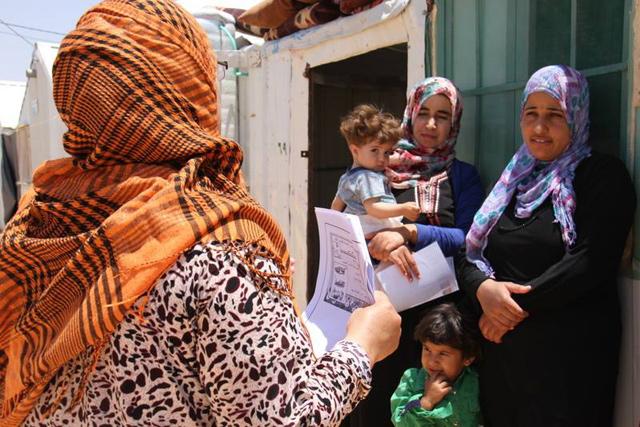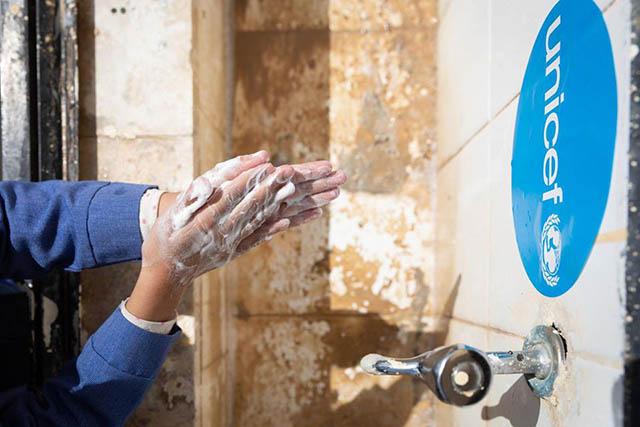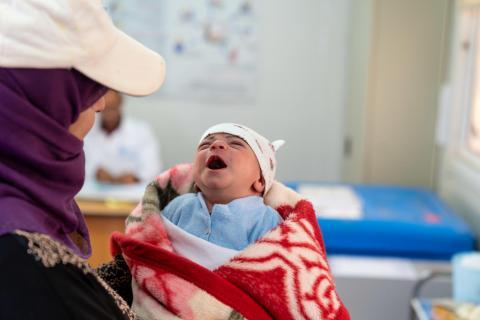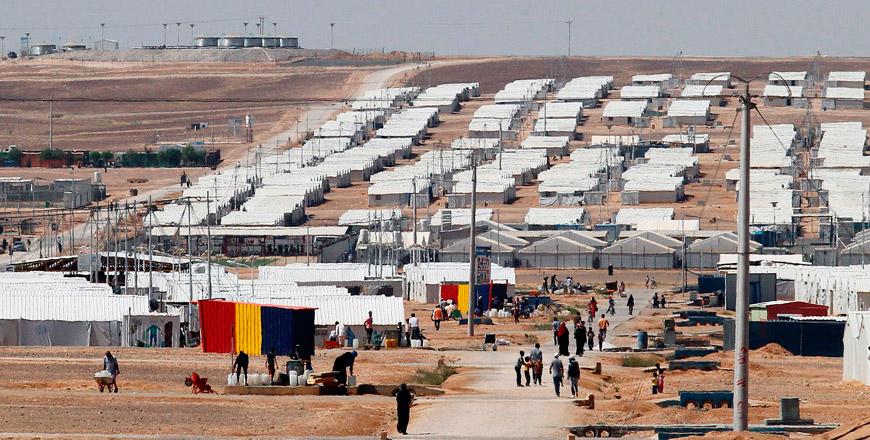You are here
Syrian refugee mothers lead way for good hygiene, fighting illnesses in camps
By Ana V. Ibáñez Prieto - Jun 30,2018 - Last updated at Jun 30,2018

720 Syrian refugee women are taking part in the Lead Mothers programme at Azraq refugee camp, where women are taking the lead in community mobilisation by spreading key hygiene messages and becoming agents for change within their communities (Photo courtesy of UNICEF)
AMMAN — “When you live in a refugee camp, it’s difficult to keep good hygiene levels, but it’s even more difficult to fight an illness in the camp, and that’s why I worked with the women to make sure they change this habit — starting with their own children,” says Amina, a Syrian refugee and mother living in Azraq Refugee Camp.
Amina is one of the 720 Syrian refugee women taking part in the Lead Mothers programme at Azraq Refugee Camp, where women are taking the lead in community mobilisation by spreading key hygiene messages and becoming agents for change within their communities.
Implemented by Action Against Hunger under a partnership agreement with UNICEF, the programme enables Syrian refugee women to raise awareness among their fellows on healthy hygiene and sanitation practices, in addition to empowering them to build their leadership skills and teach their peers about hygiene and water conservation.
Meeting twice a month, the participants first gather with Action Against Hunger’s team to discuss the challenges faced in the camp, to later share the lessons learned with other refugee mothers in their area.
Implemented within the camp’s Water, Sanitation and Hygiene (WASH) programme, the project contributes to Sustainable Development Goal number 6.2, which aims to “achieve access to adequate and equitable sanitation and hygiene for all, paying special attention the needs of women and girls and those in vulnerable situations”.
“I wanted to become one of the lead mothers because I wanted to help spread solutions on how to be clean and healthy while in the camp,” Amina recalled, elaborating on how she makes sure that “women know exactly what to do and how to keep their children away from diseases to make sure everyone stays healthy in the neighbourhood”.
“I treat these women like my own daughters — which makes me feel good,” she expressed, noting that “being a lead mother allows us women to form strong bonds, share our feelings and give advice to each other”.
Sabah, also a Syrian refugee and programme participant, warned that “health issues are no joke, especially in a camp setting”, highlighting the responsibility she feels for passing knowledge to her neighbours.
The project has now been ongoing at the camp for two years, and its benefits have been recognised by both the camp community and humanitarian actors.
Majd, a care group facilitator for Action Against Hunger, recalled the “concerning hygiene and sanitation situation” the camp was witnessing two years ago, noting the improvement in hygiene levels after two years of work.
“Perhaps the most defining difference of this concept as opposed to other programmes is that it empowers young females,” WASH Specialist at UNICEF Fiona Ward said, pointing out how “training lead mothers in the various locations in the camp gives them a sense of responsibility, and they take that with them at all times in the camp”.
Related Articles
AMMAN — The Government of Japan has announced a new contribution of $2.2 million to support UNICEF Jordan’s work to keep children healthy, l
AMMAN — The Government of Australia has announced a new contribution of $3 million to support UNICEF’s work to keep children healthy, learni
AMMAN — Thousands of Syrian refugees will be able to light their homes, charge their phones and chill their food by solar power as Jor


















